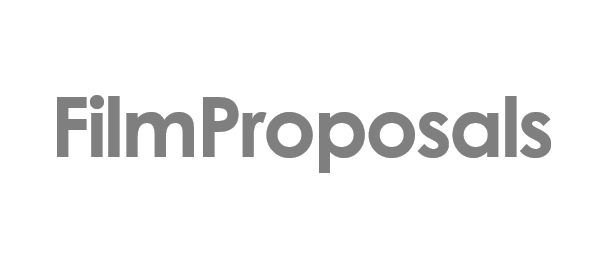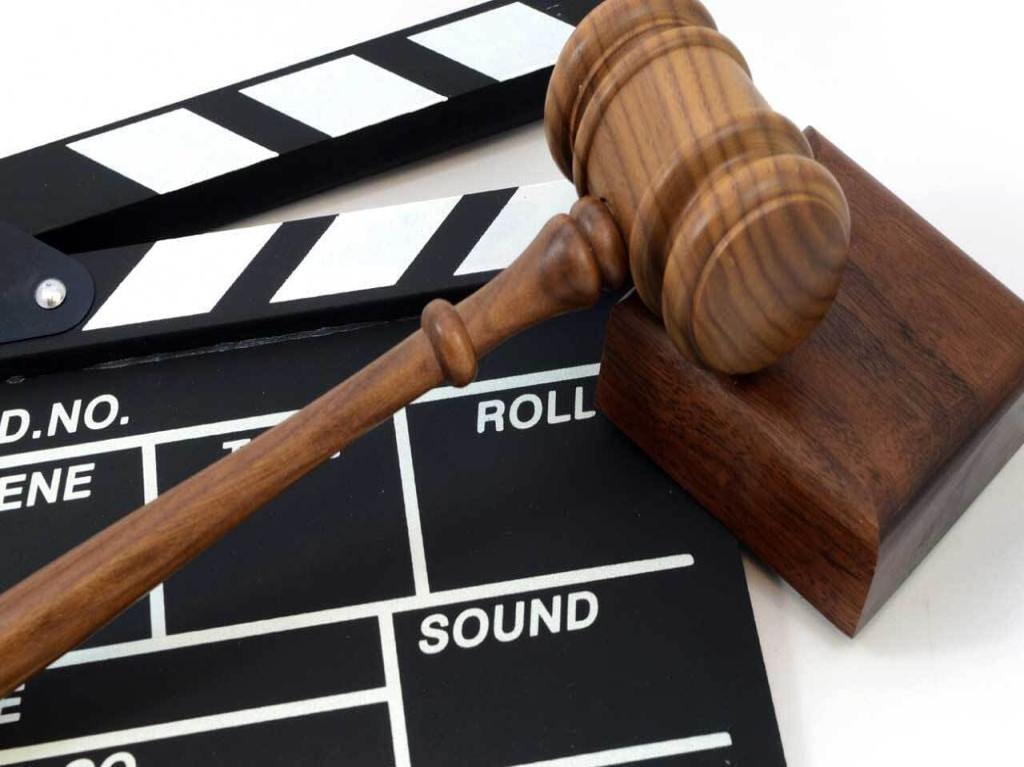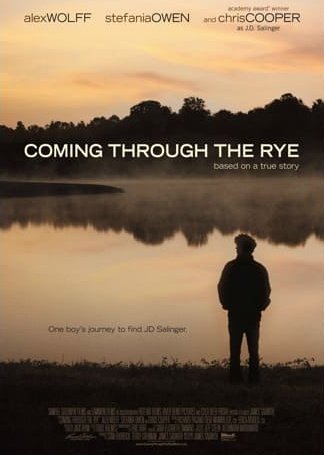The 10 Legal Steps for Filmmakers is Part II our Filmmaker Legal Checklist (see Part I), written by Dori Zavala, Attorney & Filmmaker @ Open For Show Business. If you want investors to take you seriously, you must be serious about the legal issues surrounding your film. If your project isn’t legally protected, their money won’t be either, which means they’ll be less inclined to give it to you.
10 Step Filmmaking Legal Checklist
- Form a Legal Entity
- Set Up the Business
- Document and Clear Chain of Title
- Set Up Your Business to Accept Investments
- Review Copyright Law Related to Your Film
- Protect Your Intellectual Property
- Obtain Releases
- Document Rights and Clearances
- Draft Contracts for Cast and Crew
- Obtain Insurance
- Open For Show Business (Dori Zavala, Our Recommended Entertainment Attorney)
6. Protect Your Intellectual Property
“Intellectual Property” is the name for any work that is a “creation of the mind,” such as a book, script, logo, design, name, image, invention, etc. It includes copyrighted works as well as trademark and patent. In the film context, “Intellectual Property” or “IP” often refers to underlying works that a film is based on, e.g. the Marvel comics or the Jack Reacher novels. Your film company will have IP rights in the script and in the completed film. You need to take legal steps to protect your IP and try to prevent others from stealing it from the very beginning.
A few ways that you can protect your IP:
- Never send out unsolicited scripts: If you are pitching your project, do not send the scripts unsolicited to anyone. Not only will most production companies and producers NOT open an unsolicited script, it also removes any layer of protection for you to later claim copyright infringement if they use it to make a project. Instead, ask for permission to send them your full script.
- Non-Disclosure Agreement (“NDA”): Prior to sending out a script to be read, ask the individual to sign an NDA agreeing not to disclose the script to anyone else or to make a similar movie within a specific period of time.
- Copyright Registration: Register the script with the copyright office to provide searchable, public proof of your copyright and to establish your legal rights. If you do not yet have a script, you can copyright a treatment. Once your film is complete, you will also want to register the final film with the US Copyright Office.
- Document: Keep documentation of everyone who has had access to your script or to whom you’ve pitched. Try to put everything in writing as much as possible regarding meetings, topics, pitches, etc.
7. Obtain Releases
A “release” is one of the most important legal elements to understand in the filmmaking process. It can be a stand-alone contract, or it can be a paragraph (aka “clause”) in a longer contract. A release documents in writing the owner of a copyright is “releasing” to you the right to use that copyrighted material in your film. These releases serve as formal permissions that protect you against future claims related to the use of someone's property, whether intellectual, physical, or personal.
For example, if you would like to use a piece of artwork in your film, you will need to obtain a release from the owner of the artwork (usually, but not always, the artist) to have permission to feature that artwork in your film. Similarly, an actor owns the rights to his or her own performance, and you’ll need an Actor Release to use it in your film. This release should cover aspects like promotional uses and modifications. Another example is a Location Release, used to grant you permission to film in a particular location. This document ensures the property owner has consented to filming on the premises and allows you to use any of the filmed footage in your film.
Always ensure these releases are comprehensive and tailored to the specific needs of your production to avoid legal pitfalls down the line. Some templates for releases are included in the Film Legal Pack including: Artwork Releases, Actor Releases, and Location Releases. You will also find a Crowd Release Form and a Shooting Location Request and Release Agreement.
More Info: Filmmaker Legal Pack
8. Document Rights and Clearances
In order to sell your finished film, you will need to have documented that your film is “cleared” for release and distribution. This means you have obtained all of the legal rights and clearances needed for elements of the film that are owned by other people. This is closely related to “chain of title” and “releases” discussed above. For example, you will want documented permission you have obtained releases or licenses or qualify for some other copyright exception for any artwork or music that is used in your film. Creating a Rights and Clearances Log should be standard practice, where you record each item's clearance status alongside supporting documentation to act as proof that you have permission to use copyrighted or trademarked materials, music, footage, and other proprietary elements.
Your Rights and Clearances Log should be started during development and be kept organized and up-to-date throughout all phases of production. Make sure to include details such as the type of clearance obtained (e.g., worldwide, limited), duration of the rights, and any specific conditions or limitations. When a distributor asks for your rights and clearances and clean chain of title, you will have everything organized and ready to go. Not only does this help maintain your professional reputation, it will also help to make your project more attractive to distributors and avoid potential legal challenges.
9. Draft Contracts for Cast and Crew
The film industry operates on deal memos. While a deal memo can be a good starting point for negotiations, it should always be replaced by a long-form, comprehensive contract for every member of cast and crew on your film project. These contracts define the rights, responsibilities, and expectations for all parties involved and should clearly contain at a minimum: payment terms, type of employment, working hours, job duties, overtime pay, credit attributions, non-applicability of injunctive relief, union standards (if applicable), confidentiality, and a release.
A long-form contract ensures that everyone understands in writing what the expectations are and how they will be fulfilled. It also safeguards the production against lawsuits or injunctions on the release of the film due to a legal dispute with a team member. Engaging a knowledgeable entertainment attorney to draft or review your contracts can prevent many of these potential issues and help ensure all legal bases are covered, protecting your project, your investors, and your team. I’ve drafted this fillable Crew Member Contract template with detailed instructions to walk you step-by-step through customizing the contract for your unique project.
10. Obtain Insurance
Many filmmakers think only of E&O Insurance when considering insurance for filmmaking, but in reality, there are several film-related insurance policies that can be beneficial to obtain throughout the production process. Not only will most distributors require certain types of insurance prior to accepting your film for release, but the right insurance coverage will also safeguard your film project from unforeseen liabilities and risks throughout its production and distribution phases. The most common insurance policies for film are:
- Liability Insurance: Covers injuries or property damage occurring on set to actors, crew, visitors, the general public, or filming locations. Can also cover claims of defamation, libel, and other similar types of allegations relating to the conduct of the production or the content of the film. Liability insurance should be obtained no later than the first day of production, but ideally before that as it can cover claims related to the script, and any earlier activities like auditions or initial team meetings.
- Production Insurance: Covers a range of potential issues from equipment damage to shoot delays caused by weather or illness. This should be in place before principal photography begins.
- Errors and Omissions (E&O) Insurance: E&O covers legal liabilities that might arise from content in your film, such as copyright infringement or defamation claims. It is typically required by distributors before they agree to release your film.
It’s important to consult with an insurance broker experienced in the entertainment industry who can provide guidance on the types and extent of coverage appropriate for your particular project’s needs. It’s also important to read and understand your policy so you’re aware of the coverages and limitations.
About the Author
This article was written by entertainment attorney, Dori Zavala of Open For Show Business. Please note that all information provided in this article is for informational purposes only, does not constitute legal advice, and does not create an attorney-client relationship. All readers are encouraged to consult with an entertainment attorney regarding the specifics of their unique film project.
FilmProposals Recommended Entertainment Lawyer
FilmProposals is thrilled to announce we have partnered with Dori Zavala, who offers a variety of filmmaker legal services, some designed just for FilmProposals Filmmakers. Dori is happy to work with our PPM Template and Legal Contracts. Dori is an award-winning attorney and filmmaker with over 23 years experience in the legal, business and finance fields. She is the founder of Open For Show Business, a revolutionary entertainment law and consulting practice that provides high-level strategic legal services and consulting to filmmakers to guide them in the business, legal and financing aspects of funding and distributing their films. Find out more at openforshowbusiness.com.

Related Articles:
- Film Investor Financing Templates
- Film Business Plan Services
- What is a Film Investor Agreement?
- What is an Independent Film Financing Plan?
- What is an Accredited Investor?
- Do You Need A Private Placement Memorandum?
Film Production Legal Contracts, Templates & Services
- Filmmaker Legal Pack
- Film Investor Financing Templates
- Film Private Placement Memorandum (PPM)
- Film Investor Agreement
- Script Purchase Agreement
- Deferred Compensation Agreement
- Shooting Location Request & Release Agreement
- Protecting the Chain of Title
- Filmmaker Legal Checklist (Part I)
- Filmmaker Legal List (Part II)
- Open For Show Business (Dori Zavala, Our Recommended Entertainment Attorney)
How to Work with Film Investors
Film Investor Guide
- Film Investor Ultimate Guide (For Filmmakers)
- Film Investor Primer (For Investors)
- 10 Things You MUST Do To Attract Film Investors
- Preparing for Film Investors
- Film Investor Business Plan Tips
- How to Find Film Investors
- Pitching to Film Investors
- Working With Film Investors
- Film Investor Tools & Templates
FilmProposals - 2025 Financing Toolkits & Bundles
DIY Toolkits, Legal & Finance Service Bundles
See All Financing Toolkits, Financing Bundles & Film Legal Packs
Gold Toolkit
DIY Templates- Financing Manual
- Financial Projections Template
- Business Plan Templates (Narrative & Documentary)
- Investor Agreement Outline
- Film Budget Template
- Indie Film Pitch Deck
- Custom Indie Film Database
- BONUSES (MPA Market Stats, Dealmaking, Investor Tips, ++ )
- Regular Price $303, Save $124
Gold Toolkit + Financials Bundle
Most Popular- Full Gold Toolkit
- + Professional Sales Projections & Investor ROI (10 Films)
- Regular Price $802, Save $103
Platinum Bundle
NEWEST!- Full Gold Toolkit
- + Professional Sales Projections & Investor ROI -10 Films (Reg $499)
- + Film PPM Investor Agreement (Reg $499)
- + Filmmaker Legal Pack (Reg $129)
- Regular Price $1430, Save $231
While our FilmProposals Bundles & Toolkits will save you hundreds of hours with prewritten text and templates and speed up your learning curve by showing you how to complete complicated financial projections, there is still a lot of information to process. We designed this FREE Film Business Plan Course to be sent once per week to break the process of writing your business plan into manageable pieces, and to keep you accountable and focused.
FilmProposals Tools and Templates
- Film Financing Bundles
- Film Financial Projections Template
- Film Business Plan Template
- Documentary Business Plan Template
- Film Financing and Investor Manual
- Film Budget Template
- Indie Film Pitch Deck
- Film Investor Agreement Outline
- Film Investor Tip Sheet
- Filmmaker Legal Pack
- Indie Film Database
- FREE Business Plan E-Course







